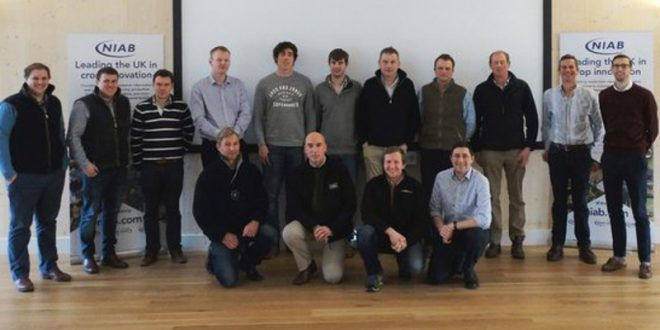Potato growers supplying McDonald’s are set to benefit from the provision of free agronomy skills training to improve crop performance and quality with the launch of the MacFry Potato Academy.
The Academy is a joint initiative between NIAB (a pioneering plant science organization based at in Cambridge) and McDonald’s UK and Ireland, in association with potato processors McCain Foods and Lamb Weston, aimed at the 209 farmers that supply the potatoes for McDonald’s iconic French fries at their 1,270 restaurants across the UK.
In 2015, McDonald’s made a commitment to source 100% British potatoes for all their UK fries. As the business sources in excess of 280,000 tons of British potatoes each year, the MacFryPotatoAcademy will be a key component of sustainable potato industry.
McDonald’s UK Agriculture Manager, Peter Garbutt said: “The MacFryAcademy is part of our commitment to helping UK potato farmers to run thriving businesses and continue to supply high quality potatoes that make perfect MacFries for our restaurants.”
NIAB’s Steven Tompkins said: “Utilizing our highly successful ARTIS training platform, www.artistraining.com, we have designed bespoke programs of technical training to equip the next generation of McDonald’s growers with the skills to grow the perfect potato for the production of McFries. Each stage of the crop’s management, from seed production through to nutrition, water management, farm safety and storage, is covered taking into account the key requirements for McDonald’s, such as long tuber length.”
A select group of farmers attended the inaugural course in February, with five days of intensive classroom training at NIAB in Cambridge. Academy graduates have access to digital crop modeling and irrigation scheduling tools, developed by NIAB CUF, to put the knowledge they have learnt into practice on their own farms.
Ben Sykes, of J Sykes & Sons in Tadcaster, who attended the Academy said: “The course has been a great opportunity to take a step back from the day to day business and think more strategically about how we plan all aspects of the crop to maximize returns.”





